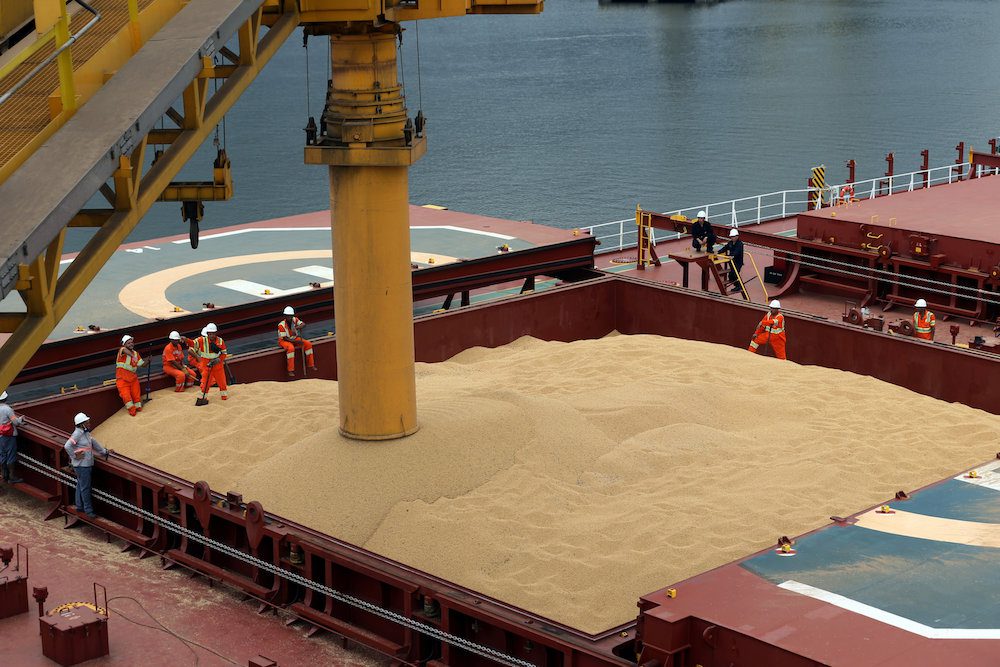File Photo: REUTERS/Paulo Whitaker

LONDON, June 12 (Reuters) – Cargill reduced CO2 emissions from its chartered shipping fleet by 350,000 tonnes last year as part of efforts to scale back its carbon footprint at sea, the food and agriculture group said.
The international shipping industry accounts for about 2% of global emissions of carbon dioxide (CO2), the main greenhouse gas blamed for global warming.
Cargill, the largest privately-held U.S. company, is among commercial firms pushing for greener shipping. In 2018 the company transported 226 million tonnes of cargo.
In its annual corporate responsibility report, Cargill said this week it had cut CO2 output per cargo-tonne-mile by 12.1% in 2018 compared with its 2016 baseline, putting them on course to achieve its goal of 15% reductions in 2020.
Its annual output was fell to 7.382 million tonnes of CO2 in 2018 from 7.732 million tonnes in 2017.
Cargo tonne miles is a key shipping indicator, measuring the volume of goods transported multiplied by distance travelled.
“While we are pleased with the progress, we know it’s not enough,” Jan Dieleman, president of Cargill’s ocean transportation business, said in a statement. “The effects of climate change are on our doorstep and we must do more.”
The Minnesota-based food commodities has over 600 ships chartered at any one time with more than 90 percent of them dry bulk vessels transporting commodities such as grain, sugar and iron ore. They also charter products tankers which ship goods such as edible oils and biodiesels.
The U.N. shipping agency, the International Maritime Organization (IMO), agreed stricter energy efficiency targets last month for certain types of ships to speed up action to cut the sector’s emissions.
Environmental campaigners have pushed for tougher targets.
The IMO’s long-term goal is to cut greenhouse gas emissions by 50% from 2008 levels by 2050. (Reporting by Jonathan Saul Editing by Edmund Blair)
(c) Copyright Thomson Reuters 2019.

 Join The Club
Join The Club











